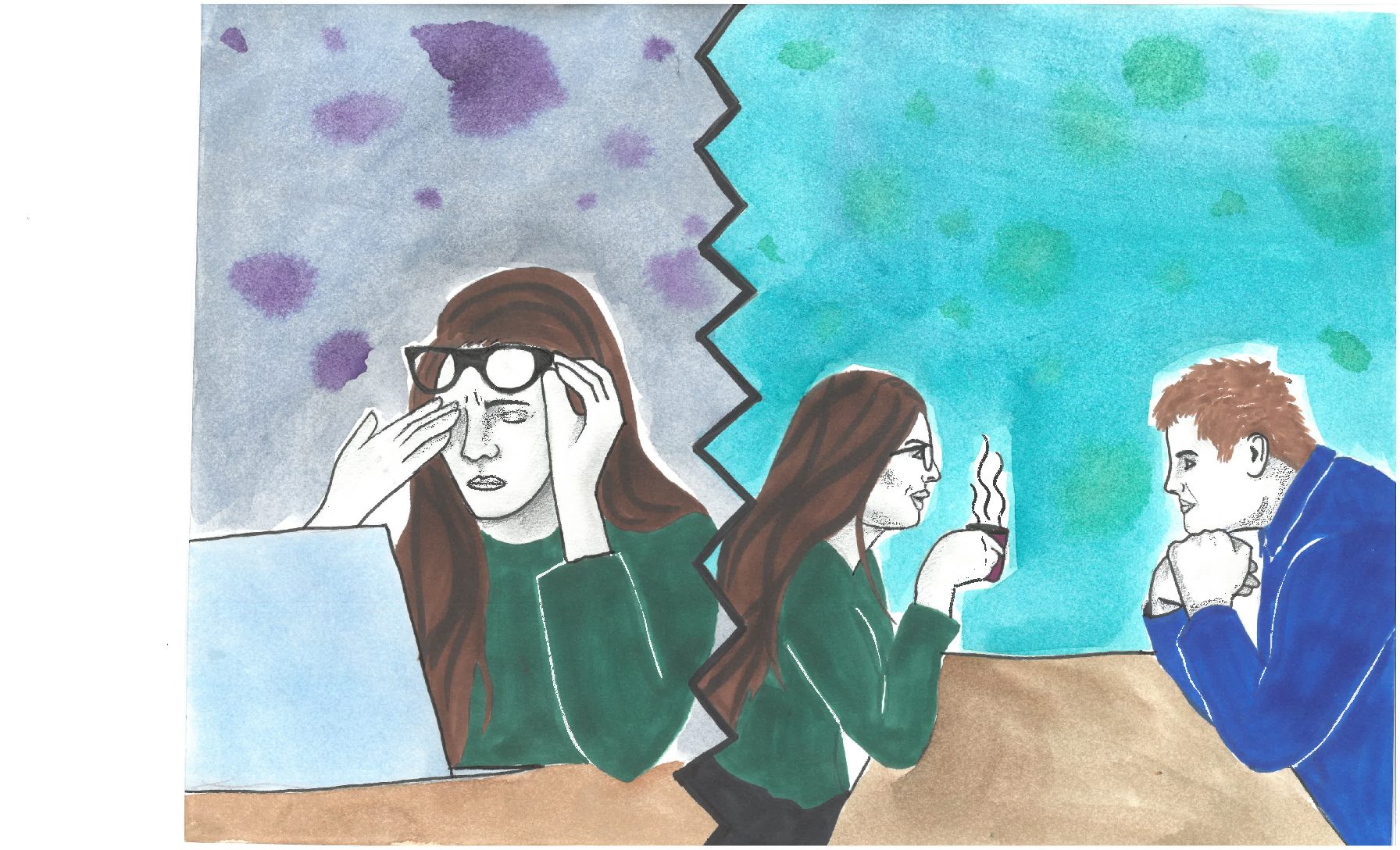
By Matthew Pramas
Managing Editor
I’m stuck in loves gone past.
This couch is warm and so are the dim outdoor lights that dangle above my head and face the collection of records and the trinkets and trash we never got around to throwing out.
It’s finals season and I’m caught with stress and inaction, stuck thinking about the past instead of the work due too soon.
But all these obligations, all this love around me is in the present. Occasionally, I move around the room, around to the future and worry about feeling stress and discontent.
As students, we’re faced with the challenge of finding a healthy balance between our personal desires and our obligations at school.
Director of Student Life Outreach and Assessment Catherine Welch calls balance the essence of life.
“I think it’s something that you start to learn how to do in college and it’s lifelong,” said Welch.
As the advisor for the campus organization Active Minds, a national non-profit seeking to raise awareness about mental health for college students, Welch said that figuring out a healthy balance evolves over time.
“I really do believe that we’re all life-long learners and so what works for us at one point in life, may not work for us five or 10 years from now.” She said she stretched herself thin in college, studying tirelessly and getting involved in many things. It wasn’t until later that she discovered running and the equilibrium it brought her.
As fall semester ends, it’s important we try to create and maintain a healthy balance between our academic obligations and cultivating relationships.
I’m in a cycle of self-sabotaging behavior as I sit here, on this couch, looking forward and listening to nothing but the sound of refrigerators. I’m teetering. Unbalanced. Like most of my friends.
Mark Lubkowitz, the chair of the biology department, said personal and professional obligations are cyclical. “There are times where I have heavy obligations [at work] and there are times I have heavy obligations at home” Lubkowitz said. “In the perfect world, they’re asynchronous.” But he said that doesn’t always happen.
He tries to be 100-percent attentive with whomever he’s dealing with, whether his students or his children. A universal balance can’t be set for everyone, said L.J. Nieulant, a Career and Leadership Coach at Burlington’s FromWithin Coaching during a conversation in Durick Library. It comes down to personal choice derived from honest self-reflection.
“Everybody is differently wired. The amount of what you can handle in whatever balance there is, or non balance, that’s where everyone is different,” Nieulant said. “It also depends on the choices you make,” he said.
Nieulant said he works with a broader age range and with more men than in the past. “There’s a whole shift going on, it seems like [people are] taking more responsibility for their life sooner and younger,” he said. But it’s still hard to create balance.
I’ve struggled with this, too. I’ve wasted time that I wonder could have been better spent. The silence in this room with all the quiet objects and soft humming of refrigerators and the smell of old dust comes as a brief solace on a peaceful night. I look up to the lights hanging above my head and picture a spherical and clear sky with no obligations, no hopes or wishes, just a life. But I hope it never does.

